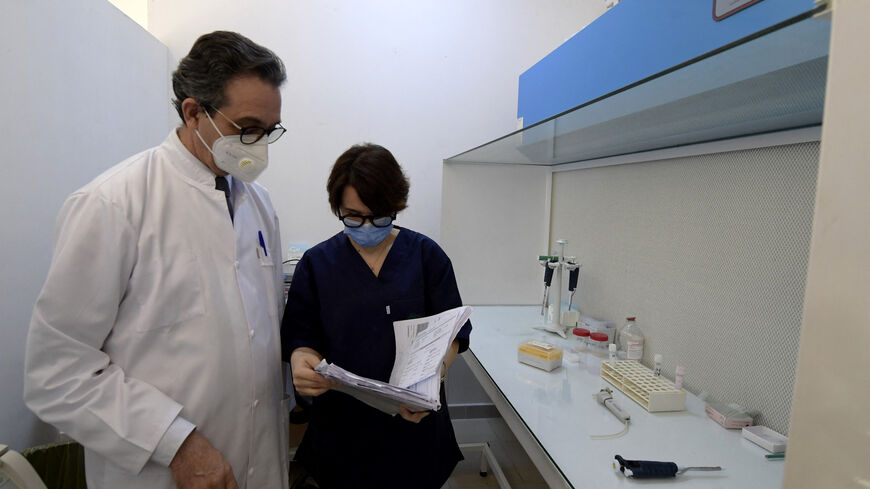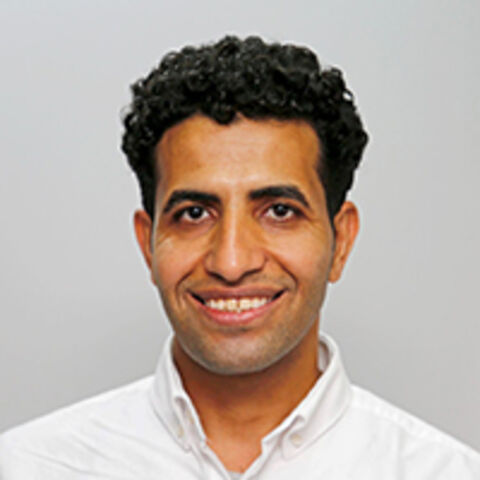From Sudan to Germany, passing through Oman, Sudanese researcher Marwa Shumo has endured discrimination to pursue her dream to become a successful scientist and open her own lab to teach women.
Shumo received a bachelor's degree in biotechnology from the University of Nizwa in Oman in 2009. She was unable to continue her studies as a Sudanese expatriate in another country, and the Sudanese government doesn't support postgraduate students who pursued their undergraduate studies abroad.
She decided to continue her studies in Germany. Despite the sexism and discrimination she suffered, Shumo graduated with a master’s degree in environmental sciences from the University of Cologne in 2012, a doctoral degree in agricultural sciences from the University of Bonn in Germany in 2019 and an international doctorate in development studies from the Center for Development Research in Germany, where she got a job as an associated researcher at the center in 2020.
“As a migrant woman and not a citizen, I worry whether they will discontinue my contract. [If they do] I would lose my residency permit and my career. In addition, many of the professorships are still limited to German citizens,” Shumo told Al-Monitor.
Shumo, or the “Lady of the Flies” as she is called in the lab, is an expert on organic waste recycling and the use of insects for food. She is currently working on a research project in Tanzania to extract protein from insects with women from a village in the capital, Dar es Salaam. “These women were previously engaged in female genital mutilation in order to make a living, but the project helped them integrate rather than punish them,” she said.
Shumo is one of few Arab female researchers in a field that has been dominated by men. So it was a surprise to see that most of the Arab young scientists who participated in the 72nd Lindau Nobel Laureate Meeting that took place in Germany on June 25-30 were women (13 women and five men).
Nobel laureates meeting
At the meeting where 40 Nobel laureates met more than 600 young scientists from all over the world, Shumo and her Lebanese colleague Rasha Shraim, a doctoral candidate at Trinity College Dublin in Ireland, were sitting side by side with four laureates on the main panel discussion about diversity and merits in science.
“I think we have reached a time where scientists are well educated in all aspects and discrimination is way behind us. We reached the point where whomever is qualified fits the position and gets the opportunity,” Natalie Youssef, a Lebanese doctoral student in biomedical sciences at the American University of Beirut, told Al-Monitor. [At the same time] the success for every woman and even for men in science and outside science definitely depends on family support.”
Youssef said that she is lucky because her husband takes care of their child when she is at science events like the Lindau meeting.
Her mother's support was a key to success for Egyptian researcher Amira Salim who hails from a Bedouin community in Marsa Matrouh, 440 kilometers (273 miles) northwest of Cairo. It wasn’t easy for her to convince her father of her desire to continue her postgraduate studies after she got a bachelor’s degree in agricultural science from Alexandria University in 2015. Yet she persevered, and with her mother's help her father agreed.
However, Salim endured verbal discrimination, eventually causing her to stop her studies in Egypt and look for an opportunity abroad.
“I have unfortunately encountered professors who still believe that women should stay at home taking care of housework,” she said.
Salim received an opportunity to pursue a master’s degree in Italy, and she moved immediately. She has lived there since 2018 and will finish her doctorate in molecular microbiology from the University of Sassari by the end of the year.
“Women in Egypt always need to make so much effort just to convince others that we are capable and qualified enough to take part in the science field,” she told Al-Monitor. “Such behavior drives us as women to give more and more and always prove ourselves in our field,” Salim said.
Amin el-Meligi, professor of physical chemistry at the National Research Center in Egypt and former head of research and vice president for academic affairs at the University of Technology in Bahrain, believes that “discrimination is a very bad word. It means that there is no humanity.”
However, he argues that discrimination against women nowadays is not the same if we compare it with the past.
“We can’t say this is a general trend but there are some instances related to salary and promotion; this is a worldwide phenomenon by the way,” he told Al-Monitor.
Meligi, who spent more than 30 years working in labs in many countries — including Egypt, the United Kingdom and Bahrain — noted an increase in the number of women in labs during the past two decades.
“In 1992, for example, mainly men worked in my lab in Egypt, but now about 70% of the staff are women,” he said. “I have seen a lot of females from Egypt, Algeria, Morocco and Saudi Arabia traveling for their undergraduate or graduate studies as well,” he added, attributing this to a change in culture and mindset in the region.
Improvement in Middle East?
According to a 2021 UNESCO report, one in three researchers is a woman, and that ratio could be much higher now. However, men and women still do not enjoy equal opportunity and equal pay in the workplace: only 12% of members of national science academies are women, a United Nations report from February revealed.
In its report, the UN called on countries “to adopt gender-transformative policies and programs that level the playing field from the schoolground to the highest levels of decision-making.”
In Saudi Arabia, Asma Al Amoodi finished her doctorate in bioscience at King Abdullah University of Science and Technology last month. She was one of three Saudi women participating in the Lindau meeting. “I discovered that the women in the West still also face discrimination in science,” she told Al-Monitor.
“Not like us,” she said, adding that she felt more efforts were being deployed in Saudi Arabia to eliminate discrimination. She referred to Saudi Arabia's de facto leader, Crown Prince Mohammed bin Salman, who pushed for reforms and revamp of its ultraconservative image.
Since his rise to power in 2017, women have been allowed to drive and travel abroad without a male guardian, while female participation in the workforce reached 37% in 2022, according to January data by the kingdom’s Ministry of Human Resources and Social Development, compared to 17% in 2016. Most recently, the oil-rich country sent its first female astronaut on a space mission in May.
This is why Amoodi believes that supporting women in education is the key to ending gender-based discrimination in the science field.
French scientist Emmanuelle Charpentier, 2020 Nobel Prize winner in chemistry, sees a number of compelling movements happening in the Middle East. “A lot of females are university professors. Maybe because it’s less attractive for men to work at universities,” she told Al-Monitor. “It is important for these countries to consider that women are the majority of the next teachers and researchers as well, and that’s why I hope it’s going to evolve.”
At the same time, she sends a message to young female scientists around the world: “My message to them is to continue what you have decided to do, to try your best to not be hindered and indicted by your society and move forward as difficult as it is.”
“If we look back in history and what has happened to women and what they endured, we find some hope for them to continue on their journey regardless of the obstacles we, as women, face,” Shumo concluded.







